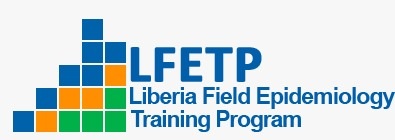Introduction: Frontline health workers are at higher risk of exposure to infectious disease compared to other health workers. Due to the novelty of COVID-19, instructional guidance on the disease management and prevention was made available by WHO. Eleven months into the COVID-19 pandemic response, there was a need to assess the level of knowledge, attitude, and practices of COVID-19 among health workers.
Methods: A cross-sectional study was conducted among health workers in Liberia. Using a multi-stage sampling technique, respondents were selected from health facilities. A respondent was categorized as having good knowledge if he or she correctly answered six out of eight questions, good attitude if a respondent scored 40 out of 50 possible scores, and good practice if a respondent correctly answered four out of five questions. We summarized findings using proportions, odds ratio, p-value, and 95% confidence interval. The variables with p value less than 0.2 at the bivariate analysis were modeled in a multiple logistic regression at 5% level of significance. The adjusted odds ratio and 95% confidence interval were reported.
Results: We found that 55% (349/630) of the respondents had good knowledge, 29.8% (188/630) had good attitude and 50.9% (321/630) had good practices of COVID-19 preventive practices. Being a clinician (aOR: 0.5, 95% CI 0.37-0.93), having secondary education (aOR: 2.7, 95%CI 1.02-7.14) and post-secondary education (aOR: 9.7, 95%CI:3.53-26.65) were predictors of good knowledge about COVID-19 preventive practices. And working in private facilities (aOR: 0.6, 95% CI: 0.43-0.91) was a predictor of good attitude toward COVID-19 preventive practices.
Conclusion: We found that KAP among health workers was average and recommend that the Ministry of Health refocus risk communication messaging to also target health workers.
